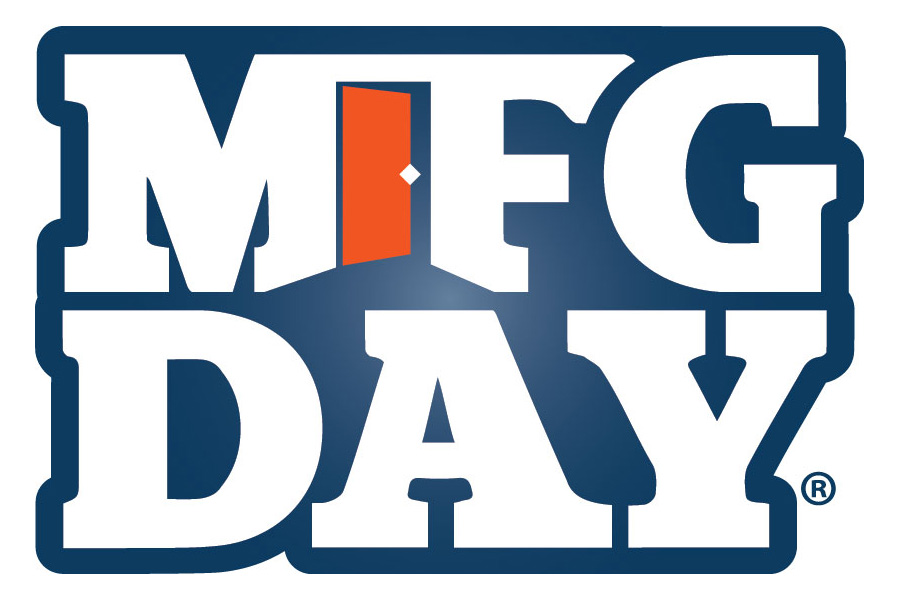Moving quality beyond product is the new topic ASQ CEO Paul Borawski has proposed to discuss with the Influential Voices.
The topic came out because of the new annual survey from The Conference Board CEO Challenge® 2012: Risky Business—Focusing on Innovation and Talent in a Volatile World. The final report from the Quality Council, that summarizes the answers from 776 top CEOs around the world, “provides insights, actions, and recommendations about how the investment in a company’s quality initiatives can contribute to meeting CEO priorities and ensuring that the C-suite is maximizing the contribution of the organization’s quality assets to answer its most pressing challenges” *
The opening report paragraph of the Quality Council’s perspective is: “For some organizations, ‘quality’ remains a set of tools and techniques associated almost exclusively with quality control. For others, quality has evolved into a critical partner, closely linked with business model development and the enterprise-wide execution of long-term strategy to achieve results”
So the question is: “How can we move quality beyond product and do not think in quality as a set of tools?“
Immediately after I read the question, it came to my mind the useful-well-known Deming’s 14 Points. Why?
- They are a set of management practices to help companies increase their quality and productivity**
- They were the foundation of the Total Quality Management – TQM: a management approach to long–term success through customer satisfaction. **
- They focus on the transformation by the people. Every member of an organization must participate in improving processes, products, services and the culture in which they work. ** Deming said: “The transformation can only be accomplished by man, not by hardware (computers, gadgets, automation, new machinery). A company can not buy its way into quality.”
- They can be applied in anywhere, to small organizations as well as to large ones, to the service industry as well as to manufacturing. They apply to a division within a company. ***
- Although they were wrote more than 20 years ago, in my opinion they are like commandments every company needs to implement in order to improve the actual company performance, applying quality in every single aspect of it. I’ve used the word commandments because they say what is needed to be done, but not how; that part we have to figure it out.
Extracted from the Deming’s book “Out of the crisis“
- Create constancy of purpose toward improvement of product and service, with the aim to become competitive and to stay in business, and to provide jobs.
- Adopt the new philosophy. We are in a new economic age. Western management must awaken to the challenge, must learn their responsibilities, and take on leadership for change.
- Cease dependence on inspection to achieve quality. Eliminate the need for inspection on a mass basis by building quality into the product in the first place.
- End the practice of awarding business on the basis of price tag. Instead, minimize total cost. Move toward a single supplier for any one item, on a long-term relationship of loyalty and trust.
- Improve constantly and forever the system of production and service, to improve quality and productivity, and thus constantly decrease costs.
- Institute training on the job.
- Institute leadership (see Point 12). The aim of supervision should be to help people and machines and gadgets to do a better job. Supervision of management is in need of overhaul, as well as supervision of production workers.
- Drive out fear, so that everyone may work effectively for the company.
- Break down barriers between departments. People in research, design, sales, and production must work as a team, to foresee problems of production and in use that may be encountered with the product or service.
- Eliminate slogans, exhortations, and targets for the work force asking for zero defects and new levels of productivity. Such exhortations only create adversarial relationships, as the bulk of the causes of low quality and low productivity belong to the system and thus lie beyond the power of the work force.
- a. Eliminate work standards (quotas) on the factory floor. Substitute leadership.
b. Eliminate management by objective. Eliminate management by numbers, numerical goals. Substitute leadership. - a. Remove barriers that rob the hourly worker of his right to pride of workmanship. The responsibility of supervisors must be changed from sheer numbers to quality.
b. Remove barriers that rob people in management and in engineering of their right to pride of workmanship. This means, inter alia, abolishment of the annual or merit rating and of management by objective. - Institute a vigorous program of education and self-improvement.
- Put everybody in the company to work to accomplish the transformation. The transformation is everybody’s job.
Deming said “Adoption and action on the 14 points are a signal that the management intend to stay in business and aim to protect investors and jobs.” But to stay in business every company, from the top management to every single employee, must commit to a system transformation, continuous improvement and evolution; moving beyond product, adopting quality as a real partner.
And because of this topic, the “Quote of the Month” I’ve selected is: “The result of long-term relationships is better and better QUALITY, and lower and lower COSTS” ~W. Edwards Deming
So, how is your company doing? If you pick one of Deming’s 14 points, is it already successfully performed in your company? Share your story!
REFERENCES
* The Conference Board CEO Challenge® 2012 report.
** ASQ – American Society for Quality
*** “Out of the crisis” by William E. Deming






19 Comments
John Hunter · June 14, 2012 at 5:01 pm
Good stuff. I think to understand the purpose behind the 14 points, Deming's next book: The New Economics is helpful. Also The Leader's Handbook by Peter Scholtes is excellent on this topic.
For those interested in Deming's ideas I have created a website:
http://curiouscat.com/deming/
Journal T. Living · June 15, 2012 at 9:44 pm
Jimena, absolutely agree with you, the 14 Points of Dr. Deming for the most part have been shortchanged, short cutted and half-heartedly imitated. When considered with right understanding and applied they have the potential to move quality past product.
As you my passion is quality. I will keep an eye on your blog.
Daniel Lang
Unabashed and Unapologetic Proponent of Dr. W. Edwards Deming
Jimena Calfa · June 18, 2012 at 10:33 pm
Thanks John for stopping by; I'll definitely check Peter's book. Thanks for the data.
Jimena Calfa · June 19, 2012 at 11:22 pm
Comment by Jim Myaard
"Jimena, to your excellent points, the 14 points are the commandments for quality "if" one is a follower and believer in the Deming principles. There is a simple litmus test to whether a large company has adopted these principles or not: Look for use of MBO (management by objective). John Hunter recommends "The Leader's Handbook by Peter Scholtes" as do I. This handbook is excellent on the debilitating effects on people within a MBO driven business culture. @ Daniel, I am also an "Unabashed and Unapologetic Proponent of Dr. W. Edwards Deming" to borrow your succinct description of self! "
Anonymous · June 21, 2012 at 6:10 am
Los 14 puntos son excelentes, sin embargo el punto numero 2 en cuanto a la parte filosofica-cultural es y seguira siendo una actividad que debemos renovar, porque con el tiempo y con los años pierde su proposito original. Las conpañias evolucionan y llegan nuevas generaciones, y solo son los procesos bien establecidos los que pueden demostrar que la cultura de calidad existe y vive en la organizacion.
ASQ member
Jimena Calfa · June 22, 2012 at 8:38 pm
Gracias por tu comentario! Es super valioso tener distintos puntos de vista sobre un mismo tema.
Estamos en contacto!
Anonymous · June 27, 2012 at 12:03 am
When we are talking about quality generally it is in the form of "product quality". To satisfy customer with product quality there are chain of process where quality involved in terms of Audit, operational quality, process flow. Here the mutual understanding starts and we restricted and focused to maintain and sustain delivered product quality. Here we need as person incharge of quality a thorough understanding of process alongwith involvement of area owners with an eye to analytical aptitude and develops a system to follow by area owner which is further reportable and recordable.
Jimena Calfa · June 27, 2012 at 12:04 am
Thanks for sharing your thoughts!
Unknown · July 11, 2012 at 10:47 pm
Great ideas and comments about how Quality must become integrated into the day to day operations to be sucessful. I have been focusing lateley on how this same concept must start happening with Innovation. Innovation is still in the hands of a few but must be in the hands of many in the future.
Anonymous · July 11, 2012 at 10:48 pm
El punto 4 cuyo énfasis es minimizar el costo de la calidad es quizá el más complejo de abordar en el ámbito educativo. No es lo mismo crear productos donde los materiales involucrados y pruebas de los mismos o los productos terminados facilitan su cuantificación.
Hace varios años como seguidor de las ideas de Deming hice un intento de adaptar los 14 principios enfocados al ámbito educativo de ducación superior en México, fueron bien recibidos pero ….finalemnte no fueron puestos en práctica.
ASQ Member Profesor de Educación Superior en México
Jimena Calfa · July 11, 2012 at 11:07 pm
Muchas gracias por compartir su historia. Es una lastima que no se hayan puesto en practica; lamentablemente sigue habiendo gente incapaz de ver el valor de una mejora, en este caso, en el aspecto educativo.
Me gustaria escuchar mas acerca de como planteo Usted la implementacion de los 14 puntos de Deming. Estoy a su disposicion para que me contacte via email or LinkedIn. Muchas gracias!
Jimena Calfa · July 11, 2012 at 11:08 pm
Thanks for your comment!
Jim Mulready · July 13, 2012 at 1:20 am
The 14 points are timeless; it's always worth reviewing them. As far as getting beyond product, my own definition of Quality is: the approach that gets you the result you want in the most effective and efficient way possible. It's universally applicable to any business process, any supplier or customer relationship, to innovation, or essentially to any result-oriented activity.
Thanks for the blog!
Journal T. Living · July 16, 2012 at 7:15 am
The 14 points have sat on my desk every day and have been reread countless times for over twenty years. Add in SoPK they same way and together it has been very fruitful.
Jimena Calfa · August 1, 2012 at 8:16 pm
Kenneth Dohrmann from ASQ Community:
I enjoyed your article on the 14 points! Thanks!
Aad Eikelenboom · September 6, 2012 at 7:38 pm
Hi Jimena,
My US colleagues forwarded your article to me.
I would like to start a discussion in the Dutch quality linked in group by posting the link to your article. I do not want to do this without you approval.
Please let me know your views.
Regards
Aad Eikelenboom
Jimena Calfa · September 6, 2012 at 7:41 pm
Of course Aad! It is my pleasure.
Just let me know if you have any interesting comments/questions during the discussion.
Keep in contact!
Aad Eikelenboom · September 6, 2012 at 9:57 pm
Since 2009 I am involved with Qisoft's QIS as a representative in Holland. Learning the software I found the need to drill down to the foundations of Quality Management. It is required in order to understand and contribute to our customers QA.
Articles like this are a great help. Anyone involved in Lean,6sigma our any other road to Business improvement should know Deming is where it starts.
Thanks
Aad
abdul qadir · January 13, 2015 at 8:36 pm
I have read a few of the articles on your website now, and I really like your style.
bigcitymoving
Comments are closed.